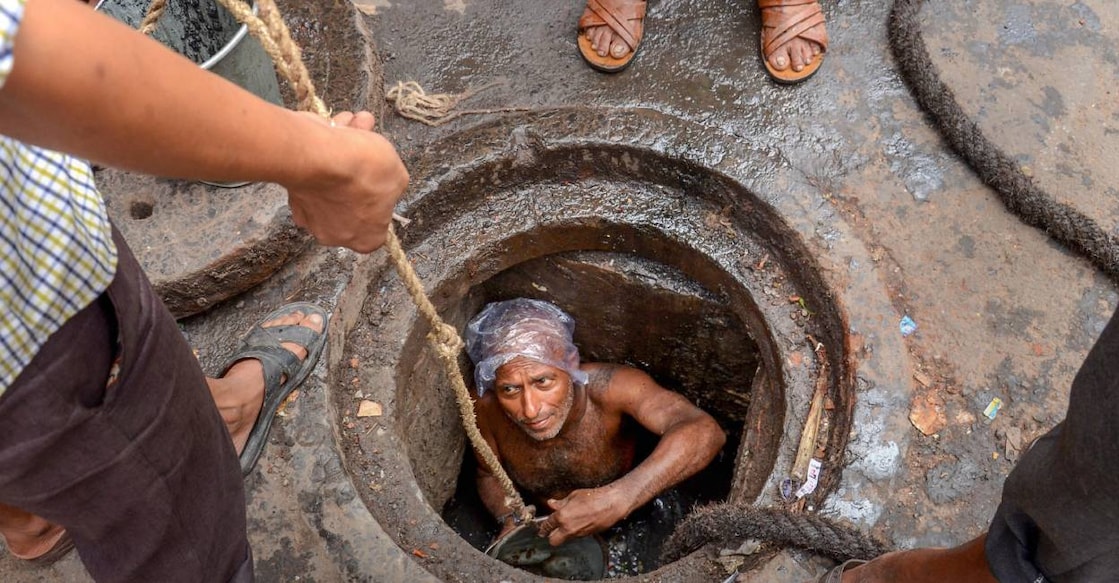Pay Rs 30 lakh as compensation for sewer deaths, SC tells centre, states

Mail This Article
New Delhi: Observing that manual scavengers have lived in bondage, systematically trapped in inhuman conditions for a long time, the Supreme Court on Friday asked the Centre and state governments to completely eradicate manual scavenging across the country.
Passing a slew of directions for the benefit of people involved in manual scavenging, the court asked the central and state governments to pay Rs 30 lakh as compensation to the next of kin of those who die while cleaning sewers.
"Ours is a battle not for wealth of power. It is a battle for freedom. It is a battle for reclamation of human personality," Justice S Ravindra Bhat quoted B R Ambedkar as he along with Justice Aravind Kumar pronounced the verdict on a PIL against manual scavenging.
Rs 20 lakh for those who suffer permanent disabilities
Enhancing the compensation in cases of sewer deaths and injuries, the top court said those who suffer permanent disabilities while cleaning sewers will be paid Rs 20 lakh as minimum compensation, and for other injuries a compensation up to Rs 10 lakh can be paid to the victims.
"The Union and the state governments must ensure that manual scavenging is completely eradicated," the bench said.
The bench issued 14 directions to the Union and state governments for effective implementation of the Prohibition of Employment as Manual Scavengers and their Rehabilitation Act, 2013.
Justice Bhat, who read out the verdict, said the authorities needed to take measures for the rehabilitation of the victims and their families.
The kith and kin of the victims be provided scholarships and imparted skill development training.
"If you have to be truly equal in all respects, the commitment that Constitution makers gave to all sections of society by entrenching emancipatory provisions such as Articles 15(2)..., each of us must live up to its promise. The Union and States are duty bound to ensure that the practice of manual scavenging is completely eradicated," Justice Bhat said.
Article 15(2) of the Constitution says the State shall not discriminate against any citizen on grounds only of religion, race, caste, sex and place of birth.
"Each of us owe to this large segment of the population, who have remained unseen, unheard and muted, in bondage systematically trapped in inhuman conditions. The conferment of entitlements and placement of obligations upon the Union and States through the express prohibitions in the Constitution and provisions of the 2013 Act mean that they are obliged to implement the provisions in the letter and spirit," he said.
Justice Bhat said a duty is cast on all to realise "true fraternity". "It is not without reason that our Constitution has placed great emphasis on the value of dignity and fraternity. But for these two, all other liberties are chimaera. All of us today, who proudly bask in the achievements of our republic, have to awake and arise so that the darkness which has been the fate of generations of our people is dispelled...," he said.
Issuing a slew of directions, which were not read out, the bench said government agencies must coordinate to ensure that such incidents do not occur and high courts are not precluded from monitoring the cases related to sewer deaths.
The bench posted the PIL for further monitoring on February 1, 2024.
As many as 347 people died while cleaning sewers and septic tanks in India in the last five years with Uttar Pradesh, Tamil Nadu and Delhi accounting for 40 per cent of these deaths, according to government data cited in the Lok Sabha in July 2022.

